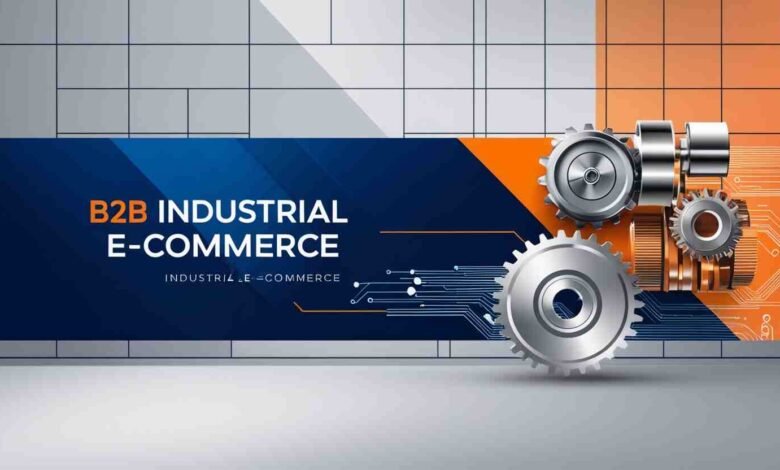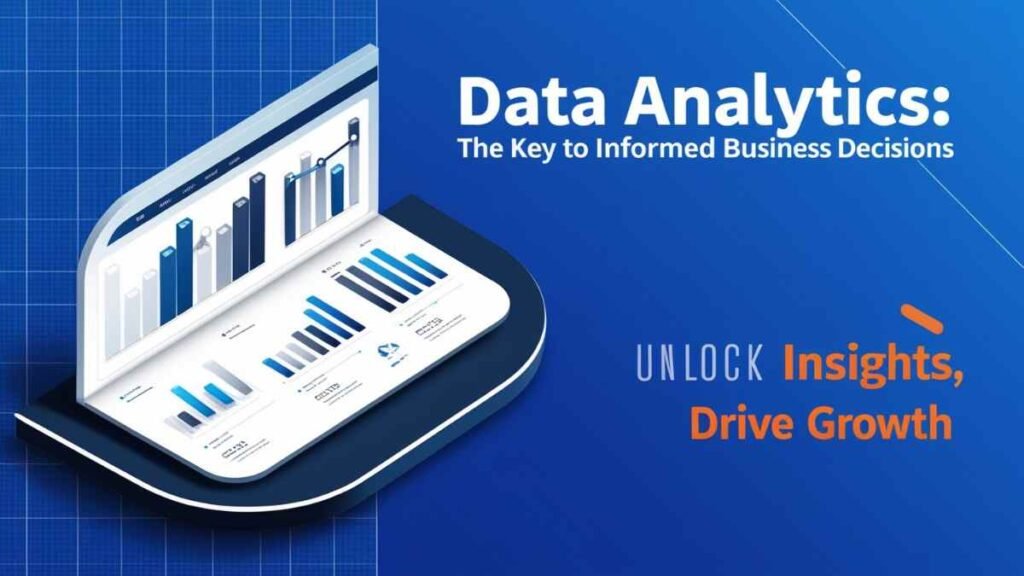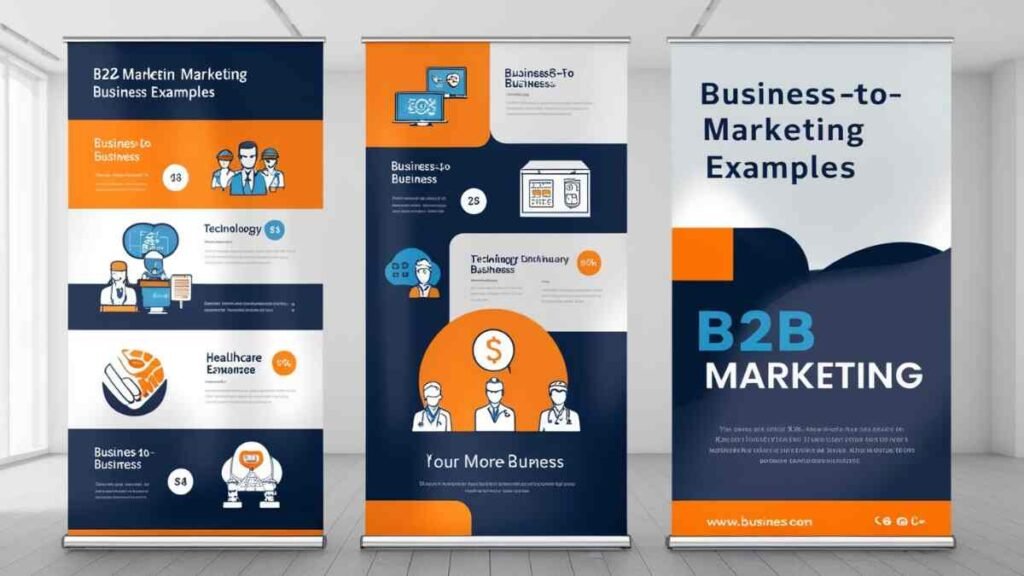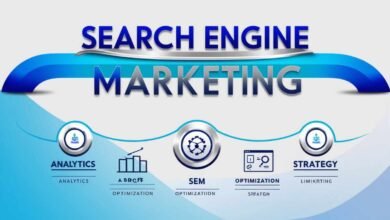B2B Industrial E-Commerce: How to Build a Thriving
B2B Industrial E-Commerce

B2B industrial e-commerce thrives with cooperative relationships. Suppliers, manufacturers, and logistics providers should be able to work together to ensure that transactions proceed without a hitch and that delivery is punctual. This way, platforms that encourage cooperation through open lines of communication and shared dashboards improve efficiencies of supply chains.
For instance, in real-time, manufacturing marketplaces can make the purchasing process seamless by negotiating with suppliers as well as monitoring shipments.
Industrial supply chain evolution.
Traditional vs. Digital Supply Solution
The traditional industrial chain uses physical catalogs, manual order processing, and massive negotiation processes. Through digital supply solutions, all this inefficiency is erased with stream-lined operations and updated real-time inventory data.
Role of technology change in supply chain
New technologies such as AI and blockchain enhance the transparency, speed, and reliability of a supply chain. It becomes easier for a buyer to integrate with a supplier with such technological advancement.
Customization in B2B Industrial E-Commerce
The other significant one, however, is customization as it continues gaining steam in B2B e-commerce. The industrial buyer in general terms is usually specific to some extent and requires bulk; so are the specs for traditional retailers. Such platforms stand out in this cluttered marketplace for helping them get customized pricing, product bundles, and flexible shipping.
For example, there might be pricing tiering per order or shipment volume such that flexible delivery time slots are allowed toward completely customized each organization’s specific requirements.
Advantages of B2B Industrial E-commerce
Making Wholesale Procurement More Efficient
B2B e-commerce platforms streamline wholesale procurement because of friendly interfaces and consolidated purchasing systems that reduce lead time.
Central Industrial Products Catalog
The industrial product catalog is a one-stop solution that can be used to view, compare, and order products. This therefore saves businesses time and effort.
Manufacturing Marketplaces Opportunities
Manufacturer-to-manufacturer online marketplaces connect manufacturers with worldwide buyers. Their scope is thus expanded to other industries and cooperation.
Here is the further extended article with more insights and details on some of the given topics:
Data analytics is very essential

This can be seen in B2B industrial e-commerce by the importance of data analytics in the optimization of operations. Advanced analytics allows an organization to identify purchasing patterns and demand, and even suggest product lines based on need. AI-based tools give the platform a suggestion capability about related items that may add optimum value to the buyer.
Real-time analytics further allows companies to track the efficiency of supply chains. For instance, predictive analytics can make it easier for businesses to monitor inventory in several warehouses. This can ensure that the businesses have optimum stock levels and avoid extra costs due to overstocking.
Implementing Sustainable Practice
The sustainability issue is crucial for the industrial sector businesses. E-commerce promotes environmentally friendly practices by selling green-certified products and streamlining logistics by minimizing waste.
For example, digital supply solutions do not overstock and do not use paper since they track supply in real-time and also predict demand. Nearly all the e-commerce websites that are available in the market today have also offered carbon-neutral shipping options.
Major Elements of B2B Industrial E-Commerce
Industrial Product Catalogs
These catalogs are electronic warehouses whereby business organizations can easily view features and prices of products for proper procurement.
Digital Supply Solutions
AI-powered tools predict demand, optimize inventory, and automate order processing so that businesses are in front of their needs.
Seamless Wholesale Purchase
All those negotiations, logistics, and payments will be available on one platform, hence making bulk purchases easier to manage.
Omnichannel Strategies in B2B E-Commerce
Omni-channels are fast becoming a prime B2B industrial e-commerce play as integrated websites, mobile apps, and social media create a cohesive customer shopping experience.
For example, an industrial buyer would research the product on a desktop and order it using a mobile app and later through email for updates. Making touchpoints consistent builds trust in the process and helps keep customers coming back.
Marketing in B2B Industrial E-Commerce
B2B Business Marketing Strategies
Targeted email campaigns, content marketing, and SEO optimization for the specific needs of industrial buyers are some of the effective strategies.
Understanding B2B Marketers
B2B marketers link businesses in a campaign and data-driven moves of communication; therefore, the actual partnership.
Real-world applications of B2B e-commerce
Manufacturing Marketplace Examples
Thomas Net and Alibaba at the forefront give examples of how digital spaces can revolutionize manufacturing and industrial trade.
Business-to-Business Examples

Such straightforward, seamless company integration also promises to allow contractors because companies are becoming increasingly accepting of e-commerce.
Problems and Solutions in B2B E-Commerce
Overcoming integration hurdles
It is extremely challenging to integrate systems of yesteryear with one that is of today. Investment in scalable, cloud-based solutions counters this problem.
Cyber-security issues
Platforms that have superior level encryption will ensure secure transactions due to building confidence in the said sensitive data and provide security in transactions.
Future Trends of B2B Industrial E-Commerce
AI personalization
In future transactions, AI will be significant in providing tailor-made experiences, predicting their needs, and increasing customer satisfaction in B2B transactions.
More Global Markets
Crossborder marketplaces will increase. Even the smallest manufacturers compete everywhere in the world.
Conclusion
Changing the game in streamlining procurements, efficient supply chain operation, and international collaboration for multiple industries. Such technology equips business companies with opportunities for the handling of historical inefficiencies to create growth.
Going forward, these factors: AI personalization, sustainability, and mobile optimization are what shall differentiate the leading companies within the industry.
FAQs
What kind of industries would benefit from B2B industrial e-commerce?
Manufacturing, construction, the pharmaceutical industry, and aerospace manufacturing greatly benefit from streamlined procurement and a global market.
How is AI applicable in industrial e-commerce?
AI elevates personalization, automated inventory management, and trends, thereby making operations lean and customer-centric.
Some of the specific challenges in industrial e-commerce include the following?
The core problems faced include the challenge the complexity of compliance requirements poses, the challenge of legacy system integration, and the challenge of cybersecurity.
How does mobile optimization benefit the customer?
It affords the buyer the facility to order at any given time and be informed at any given time of shipment.
Industrial product catalogs play an extremely significant role in marketing.
These catalogs are very marketing-oriented tools that contain information in regards to the product specs features, and details on prices as it attracts the client.
Read More: Direct Selling And Network Marketing





